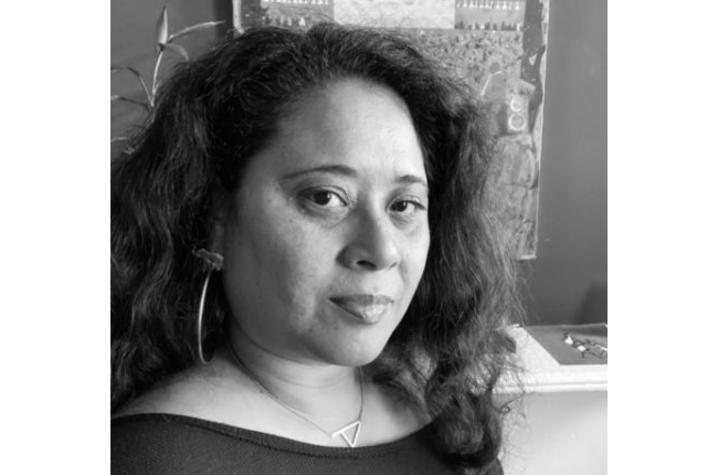Q&A: Adrienne Dixson shares how research has power to improve educational equity

University of Kentucky Professor Adrienne Dixson, Ph.D., says education research, when done well and with a focus on addressing inequity, can be quite powerful. Dixson is executive director of the Educational and Civil Rights Initiative at the UK College of Education and professor in the Department of Educational Leadership Studies. She is on special assignment as a program manager for the National Science Foundation's new Racial Equity in STEM Education program.
Today, she answers our questions about her career and how innovative and responsive scholarship can impact educational equity and help children receive a high-quality education.
UKNow: Your nationally recognized scholarship focuses on how educational equity is impacted by issues of race, class and gender and how they intersect. For those outside the field, can you explain some of what this entails?
Dixson: I am interested in why and how some students do well and others fail despite school policies that say they support all people regardless of background. So, many times we have policies that don’t often line up with practices by school leaders or even teachers. We could call them biases, but often they are just practices that have become so embedded in schooling that we often taken them for granted.
UKNow: Prior to entering higher education, you started your career as a teacher in New Orleans. What did you teach and what was the experience like? Did your teaching career influence your decision to become a doctoral scholar and pursue a career in higher education?
Dixson: I was a sixth grade teacher. I taught all subjects. It was both the best professional experience I’ve ever had and the most grueling professional experience I’ve ever had.
Being a teacher in New Orleans absolutely influence me to pursue graduate study. Initially, I only wanted a master’s degree because I wanted to move up and create curriculum for the New Orleans Public Schools. The more I learned about culture, race and their impact on teaching and learning, the more I reflected on my own teaching and the context of my school, that I wanted to do research to effect change.
UKNow: We are currently in the middle of Black History Month, giving us the opportunity to reflect on the past, as well as look to the future. When you look at the 1954 Brown v. Board of Education Supreme Court decision, which legally ended racial segregation of schools, what remnants exist today? How can research focused on educational equity help eliminate the disparities we still encounter?
Dixson: I think remnants of Brown that reverberate across the p-20 spectrum of education is this belief that some children, “because of their background” are inherently unsuited for high quality education. Sadly, most of those children are Black and Latino. While no one says that out loud, we see those beliefs manifest in how we fund schools, who gets access to enriching and life changing educational experiences, who teaches our children and leads our schools.
Education research, when done well and with a focus on addressing inequity, can be quite powerful. Sadly, very few of our politicians who have influence and power, read it and use it to inform policies in ways that matter and will change the lives of students and communities.
UKNow: About 79% of all U.S. teachers identify as white/non-Hispanic, according to the latest data you have cited from the Pew Research Center and National Center for Education Statistics. Considering this, what efforts can teachers make to build their ability to engage with students in culturally relevant ways?
Dixson: I worry about this all the time. I think we need to transform how we not only train teachers, but the actual work of teaching. The structure of schooling and the school day has been fairly stable for over 50 years. If we treated teachers like intellectuals, the school structure would look very different. Teachers would have formal time to think, read, write and engage in inquiry. They’d be able to do this during the school day, not after school and on weekends. This would afford teachers time to learn and expand their thinking on a range of things. Right now, we rely on simplistic “fixes” like one off PD or just good that teachers will go learn on their own.
UKNow: That same data shows that Black teachers represent about 7% of all teachers in the U.S. How can educational equity research influence the recruitment and retention of Black educators?
Dixson: We know that the structure of teacher ed is cost prohibitive for many students of color. We can study that more intently. We can also do more research about the professional lives of teachers to understand why Black teachers leave and make changes to retain them.
UKNow: It seems your work has come full circle, in that you are now conducting research focused on education in a post-Katrina New Orleans. Can you explain what you’re looking at and how you hope it makes an impact?
Dixson: I am looking at the impact of education reform on Black people in New Orleans. My work speaks back to research that claims the reforms were and are positive. I want to make sure that the historical record reflects that Black people rejected and fought against the reforms. We continue to fight them even though we are out resourced and have very little political power right now to change them.
UKNow: You have said your work is anchored in the enduring concepts represented by symbols belonging to the Ashanti peoples of West Africa. For instance, the Sankofa looks to the past for lessons to guide the future. It symbolizes that mistakes are never too big to be undone. Does this concept give you hope for achieving greater equity in education?
Dixson: Yes, it does. These symbols remind me that our legacy is hope. As long as I wake up every day, I always hope that we will achieve equity.
More from this series Research Priorities - Diversity & Inclusion
Credits
Amanda Nelson (College of Education)



